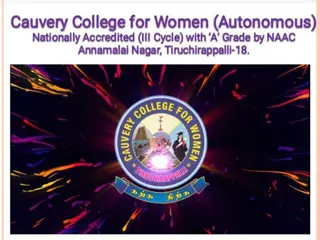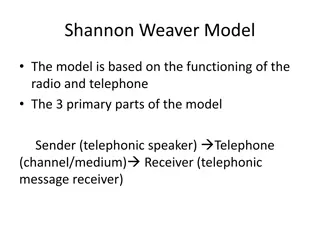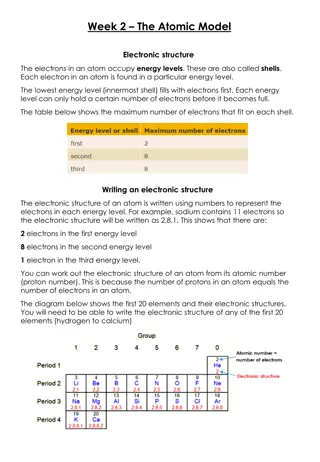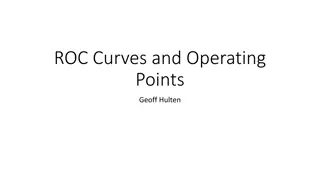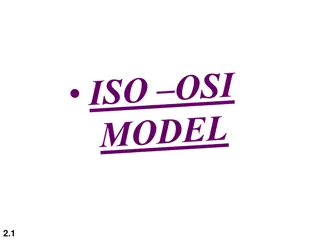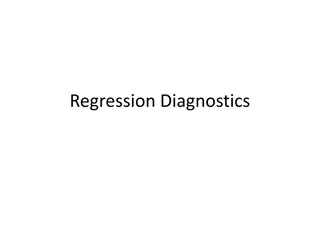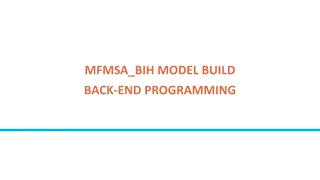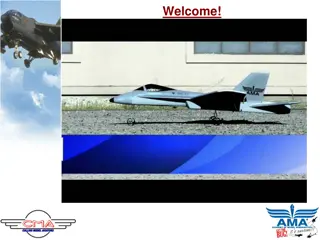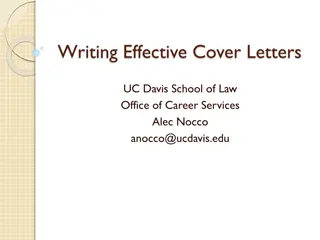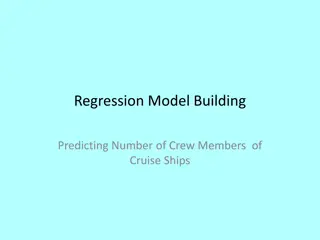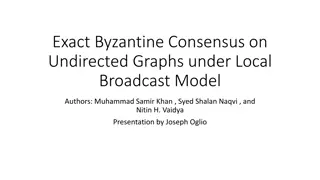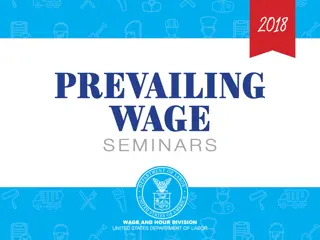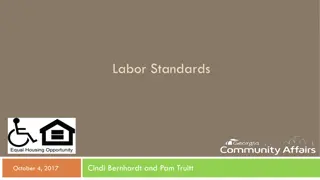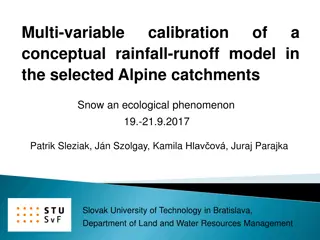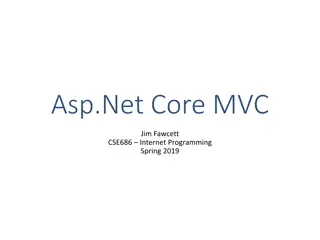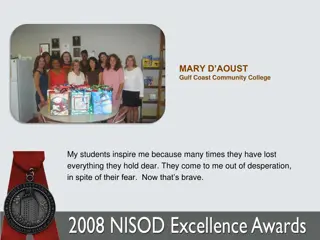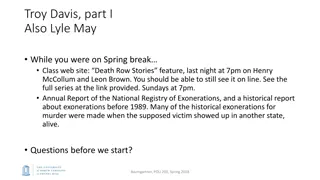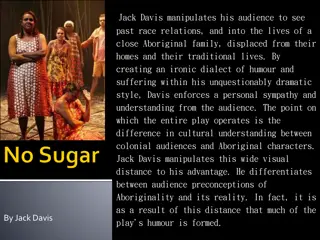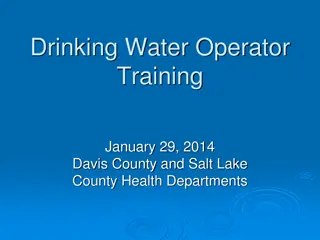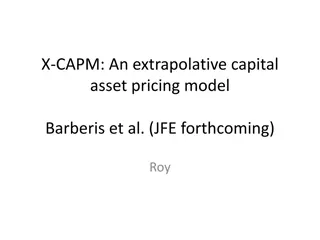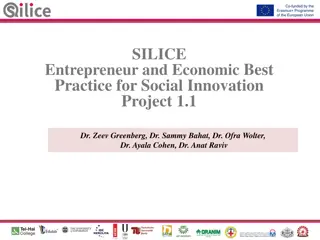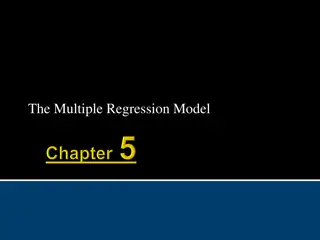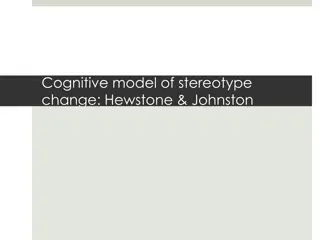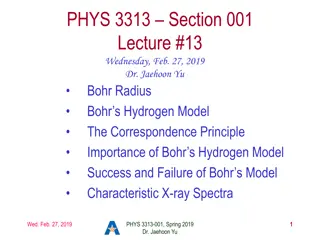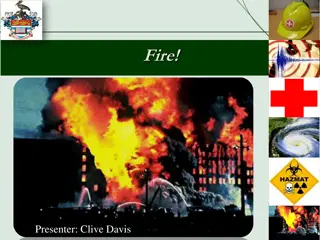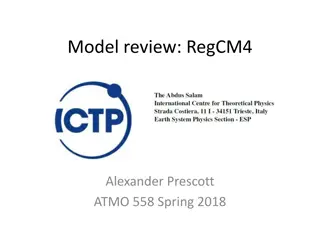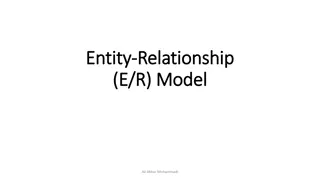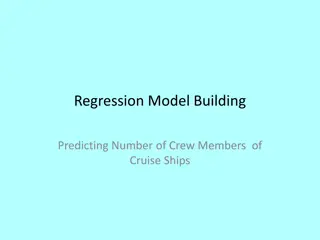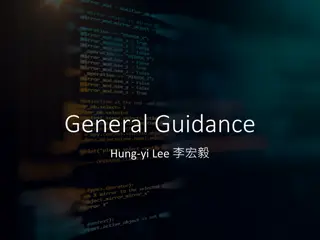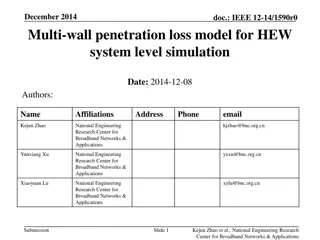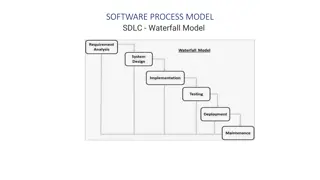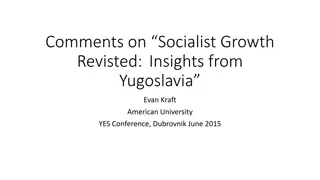Building a Macrostructural Standalone Model for North Macedonia: Model Overview and Features
This project focuses on building a macrostructural standalone model for the economy of North Macedonia. The model layout includes a system overview, theory, functional forms, and features of the MFMSA_MKD. It covers various aspects such as the National Income Account, Fiscal Account, External Accoun
2 views • 23 slides
Understanding Davis-Bacon Requirements for HUD Programs
Davis-Bacon Act applies to MHDC developments with 12 or more HOME-Assisted Units. Developers must verify the need for Davis-Bacon compliance with all funding sources. Weekly payrolls, wage determinations, and common issues with resolutions are key aspects to consider for adherence to the Davis-Bacon
5 views • 10 slides
NAMI Family Support Group Model Overview
This content provides an insightful introduction to the NAMI family support group model, emphasizing the importance of having a structured model to guide facilitators and participants in achieving successful support group interactions. It highlights the need for a model to prevent negative group dyn
6 views • 23 slides
Davis & Moore Theory on Social Stratification
The Davis-Moore theory argues that social inequality is necessary as it motivates talented individuals to fulfill crucial roles in society. They believed in meritocracy and unequal rewards to incentivize individuals to pursue important roles. The theory emphasizes that society rewards talent and har
3 views • 8 slides
Understanding Entity-Relationship Model in Database Systems
This article explores the Entity-Relationship (ER) model in database systems, covering topics like database design, ER model components, entities, attributes, key attributes, composite attributes, and multivalued attributes. The ER model provides a high-level data model to define data elements and r
0 views • 25 slides
Communication Models Overview
The Shannon-Weaver Model is based on the functioning of radio and telephone, with key parts being sender, channel, and receiver. It involves steps like information source, transmitter, channel, receiver, and destination. The model faces technical, semantic, and effectiveness problems. The Linear Mod
0 views • 8 slides
Understanding Atomic Structure: Electrons, Energy Levels, and Historical Models
The atomic model describes how electrons occupy energy levels or shells in an atom. These energy levels have specific capacities for electrons. The electronic structure of an atom is represented by numbers indicating electron distribution. Over time, scientists have developed atomic models based on
0 views • 5 slides
Empowerment and Self-Discovery in Viola Davis's "Finding Me
Viola Davis's memoir, "Finding Me," delves into themes of empowerment, self-discovery, and resilience. Through personal anecdotes, Davis shares her journey of overcoming obstacles and embracing her past to fuel her present and future. The memoir highlights the importance of self-acceptance, compassi
0 views • 7 slides
Understanding ROC Curves and Operating Points in Model Evaluation
In this informative content, Geoff Hulten discusses the significance of ROC curves and operating points in model evaluation. It emphasizes the importance of choosing the right model based on the costs of mistakes like in disease screening and spam filtering. The content explains how logistical regre
7 views • 11 slides
Understanding the OSI Model and Layered Tasks in Networking
The content highlights the OSI model and layered tasks in networking, explaining the functions of each layer in the OSI model such as Physical Layer, Data Link Layer, Network Layer, Transport Layer, Session Layer, Presentation Layer, and Application Layer. It also discusses the interaction between l
1 views • 41 slides
Regression Diagnostics for Model Evaluation
Regression diagnostics involve analyzing outlying observations, standardized residuals, model errors, and identifying influential cases to assess the quality of a regression model. This process helps in understanding the accuracy of the model predictions and identifying potential issues that may aff
1 views • 12 slides
MFMSA_BIH Model Build Process Overview
This detailed process outlines the steps involved in preparing, building, and debugging a back-end programming model known as MFMSA_BIH. It covers activities such as data preparation, model building, equation estimation, assumption making, model compilation, and front-end adjustment. The iterative p
0 views • 10 slides
Proposal for Radio Controlled Model Aircraft Site Development
To establish a working relationship for the development of a site suitable for radio-controlled model aircraft use, the proposal suggests local land ownership with oversight from a responsible agency. Collins Model Aviators is proposed as the host club, offering site owner liability insurance throug
0 views • 20 slides
UBU Performance Oversight Engagement Framework Overview
Providing an overview of the UBU Logic Model within the UBU Performance Oversight Engagement Framework, this session covers topics such as what a logic model is, best practice principles, getting started, components of the logic model, evidence & monitoring components, and next steps. The framework
0 views • 33 slides
Writing Effective Cover Letters - Tips from UC Davis School of Law
Learn the essentials of writing a compelling cover letter from UC Davis School of Law's Office of Career Services. Understand the purpose of cover letters, what to include, and how to structure them effectively to secure job interviews. Gain insights into crafting a tailored cover letter that highli
0 views • 14 slides
Regression Model for Predicting Crew Size of Cruise Ships
A regression model was built to predict the number of crew members on cruise ships using potential predictor variables such as Age, Tonnage, Passenger Density, Cabins, and Length. The model showed high correlations among predictors, with Passengers and Cabins being particularly problematic. The full
0 views • 16 slides
Exact Byzantine Consensus on Undirected Graphs: Local Broadcast Model
This research focuses on achieving exact Byzantine consensus on undirected graphs under the local broadcast model, where communication is synchronous with known underlying graphs. The model reduces the power of Byzantine nodes and imposes connectivity requirements. The algorithm involves flooding va
0 views • 7 slides
Understanding DBA and DBRA Compliance Principles
Explore the key principles of compliance related to the Davis-Bacon Act (DBA) and Davis-Bacon Related Acts (DBRA), covering topics such as laborers and mechanics, fringe benefits, site of work, deductions, and certified payrolls. Learn about the classification of work and the definition of laborers
0 views • 30 slides
Compliance with Labor Standards in Federal Contracts
Learn about key regulations and statutes such as the Copeland Act, Contract Work Hours and Safety Act, and Davis-Bacon Act that govern labor standards for federal projects. Understand the steps to comply with Davis-Bacon labor standards, including wage decisions, requesting wage determinations, and
0 views • 27 slides
Calibration of Multi-Variable Rainfall-Runoff Model Using Snow Data in Alpine Catchments
Explore the calibration of a conceptual rainfall-runoff model in Alpine catchments, focusing on the importance of incorporating snow data. The study assesses the benefits of using multi-objective approaches and additional datasets for model performance. Various aspects such as snow cover, groundwate
0 views • 16 slides
Understanding Asp.Net Core MVC - Building Web Applications with Model-View-Controller Pattern
Asp.Net Core MVC is a framework for building web applications based on the Model-View-Controller pattern. The model manages application data and constraints, views present application state, and controllers handle requests and actions on the data model. Learn about the MVC structure, life cycle, mod
0 views • 22 slides
Inspiring Stories of Educators Making a Difference
Educators like Mary Daoust, Maryam Damghani, Karen Davidson, Dianne Davis, Phillip Davis, Lourdes De La Cruz, and Alfred De La Rosa share their motivations and experiences in teaching. They highlight the impact of education on students' lives, from resilience in adversity to instilling a love for le
0 views • 58 slides
Connections Between Lyle May, Troy Davis, and Exoneration Stories
Explore the intertwined narratives of Lyle May and Troy Davis, delving into legal complexities, expert witness credibility, and the impact of cooperation with law enforcement. Discover the common threads linking their cases to broader themes of justice and exoneration.
0 views • 21 slides
Understanding the Davis-Bacon Act (DBA) and Its Coverage
The Davis-Bacon Act (DBA), enacted in 1931 and amended in 1935 and 1964, safeguards local workers and communities from non-local contractors undercutting wage levels. It applies to contracts exceeding $2,000 involving construction, alteration, or repair of public buildings or works with federal or D
0 views • 19 slides
Understanding Cultural Divide in "No Sugar" by Jack Davis
Jack Davis manipulates his audience's perception of race relations and delves into the lives of an Aboriginal family, displaced from their traditional homes. By using humor and suffering through an ironic lens, Davis evokes sympathy and understanding from the audience. The play focuses on the cultur
0 views • 11 slides
Management of Drinking Water Operators in Davis County and Salt Lake County
Davis County and Salt Lake County Health Departments oversee drinking water operator training, fluoride regulation history, and monitoring processes. This includes setting optimal fluoride levels, conducting regular surveillance, and ensuring compliance with regulations.
0 views • 48 slides
Smart Strategies for Legal Professions: Word Power Hour with Debbie Foster & Danielle Davis-Roe
Explore top 10 tips and tricks for enhancing your Microsoft Word skills in the legal realm with the experienced and creative duo, Debbie Foster & Danielle Davis-Roe. From fixing settings to mastering document formatting, this session offers valuable insights for optimizing productivity and efficienc
0 views • 35 slides
Understanding X-CAPM: An Extrapolative Capital Asset Pricing Model
This paper discusses the X-CAPM model proposed by Barberis et al., which addresses the challenges posed by investors with extrapolative expectations. The model analytically solves a heterogeneous agents consumption-based model, simulates it, and matches various moments. It explores how rational inve
0 views • 23 slides
Innovation and Social Entrepreneurship Initiatives in Higher Education
This project focuses on establishing a leading center for promoting innovation and social entrepreneurship within higher education institutions. It aims to encourage students and staff to develop creative solutions for community challenges, expand social involvement, and foster sustainable positive
0 views • 13 slides
Principles of Econometrics: Multiple Regression Model Overview
Explore the key concepts of the Multiple Regression Model, including model specification, parameter estimation, hypothesis testing, and goodness-of-fit measurements. Assumptions and properties of the model are discussed, highlighting the relationship between variables and the econometric model. Vari
1 views • 31 slides
Cognitive Model of Stereotype Change: Three Models Explored
The Cognitive Model of Stereotype Change, as researched by Hewstone & Johnston, delves into three key models for altering stereotypical beliefs: the bookkeeping model, the conversion model, and the subtyping model. These models suggest strategies such as adding or removing features to shift stereoty
0 views • 58 slides
Understanding Bohr's Model of the Hydrogen Atom
Exploring the significance of Bohr's hydrogen model in physics, this lecture delves into the Bohr radius, the correspondence principle, and the success and limitations of his model. Discover how characteristic X-ray spectra contribute to our understanding of atomic structures, leading to the conclus
0 views • 14 slides
Fire Safety Presentation by Clive Davis - Tips, Prevention, and Equipment Overview
Enhance your fire safety knowledge with Clive Davis' comprehensive presentation covering fire prevention tips, classes of fire, detection and alarm systems, suppression equipment, and various types of fire extinguishers. Learn about fire safety measures, prevention techniques, and essential protocol
0 views • 23 slides
Overview of RegCM4 Model Features
RegCM4 is a community model developed since the 1980s, with over 800 scientists contributing to its advancements. It features a fully compressible, rotating frame of reference and a limited area dynamical core based on the Penn State/NCAR Mesoscale Model 5 (MM5). The model uses hydrostatic and nonhy
0 views • 14 slides
Understanding Entity-Relationship Model in Databases
The Entity-Relationship Model (E/R Model) is a widely used conceptual data model proposed by Peter P. Chen. It provides a high-level description of the database system during the requirements collection stage. Entities represent things of independent existence, each described by a set of attributes.
0 views • 21 slides
Predicting Number of Crew Members on Cruise Ships Using Regression Model
This analysis involves building a regression model to predict the number of crew members on cruise ships. The dataset includes information on 158 cruise ships with potential predictor variables such as age, tonnage, passengers, length, cabins, and passenger density. The full model with 6 predictors
0 views • 15 slides
Understanding Model Bias and Optimization in Machine Learning
Learn about the concepts of model bias, loss on training data, and optimization issues in the context of machine learning. Discover strategies to address model bias, deal with large or small losses, and optimize models effectively to improve performance and accuracy. Gain insights into splitting tra
0 views • 29 slides
Analysis of Multi-Wall Penetration Loss Model for HEW System-Level Simulation
In December 2014, a multi-wall penetration loss model for HEW system-level simulation was proposed by Kejun Zhao, Yunxiang Xu, and Xiaoyuan Lu from the National Engineering Research Center for Broadband Networks & Applications. The model provides more accurate calculations of penetration loss in ind
0 views • 11 slides
Understanding the Waterfall Model in Software Development
The Waterfall Model is a linear-sequential life cycle model for software development. In this model, each phase must be completed before the next can begin, without overlaps. The sequential phases include Requirement Gathering, System Design, Implementation, Integration and Testing, Deployment, and
0 views • 7 slides
Insights from Yugoslavian Economic Growth Model Analysis
This paper revisits socialist growth in Yugoslavia, focusing on model-based assessment of economic determinants and findings related to Total Factor Productivity (TFP) growth. The model decomposes output growth deviations, discussing factors like efficiency wedge, labor wedge, investment wedge, and
0 views • 12 slides




